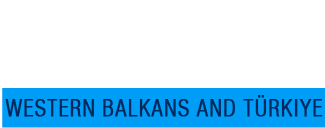Association of Journalists (AoJ) Hosts Training Camp on Investigative Journalism
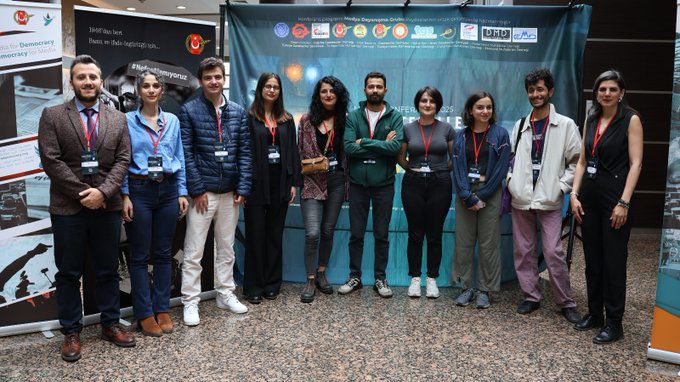
‘Journalism is a Commitment to Truth’
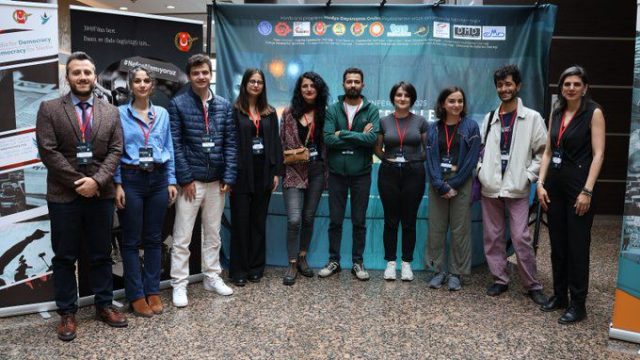
The camp commenced at the Litai Guest House in Ankara with an opening speech by Ayhan Aydemir, Vice President of the Association of Journalists. Highlighting the mounting pressures facing the profession, Aydemir remarked:
“Defending the truth is a journalist’s foremost duty. Freedom of expression and solidarity are indispensable. Journalism demands courage and resilience.”
Project coordinators introduced the participants to the structure and objectives of the programme. Following an icebreaking session, Dr. Çağrı Kaderoğlu Bulut delivered a lecture on the historical evolution of investigative journalism and the growing challenges of accessing trustworthy information in the digital era. She underscored the significance of data verification amid widespread disinformation and explored how technology continues to reshape journalism.
Digital Tools and Investigative Techniques

In the afternoon session, investigative journalist Doğu Eroğlu delivered in-depth training on the foundational stages of investigative journalism: topic selection, background research, fieldwork, data collection, and publication. He also led a hands-on session on spatial research methods, introducing participants to geolocation and chronolocation techniques. Attendees practiced reverse image searches, multi-source verification, and digital tracing tools, gaining firsthand experience with investigative technologies.
The second day featured training by journalist-academic Pınar Dağ on data journalism. The session focused on data literacy, analytical strategies, visualisation techniques, and the use of AI in data processing. Later that day, Dağ facilitated a workshop enabling participants to apply the tools they had learned in practical news production exercises.
Editorial Guidance
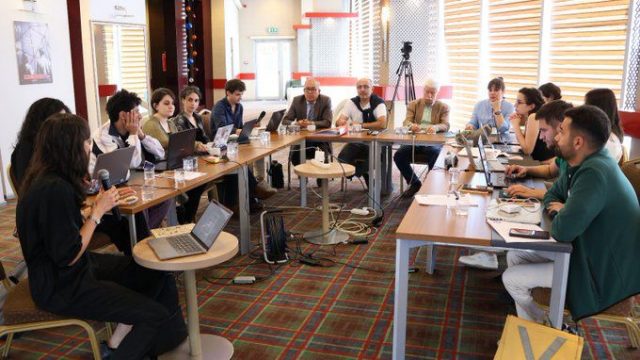
On the third day, an editorial board was formed to evaluate and support participants’ story proposals. The board included seasoned journalists Faruk Bildirici, Ahmet Kıvanç, Özlem Akarsu Çelik, Erhan Karadağ, and myself-Gökçen Çamlıyurt. They reviewed each investigative concept, provided constructive editorial feedback, and helped sharpen the journalistic focus of the stories.
In the afternoon, journalist Sedat Bozkurt led a session on building a professional identity in journalism. He emphasized that neutrality does not equate to indifference and highlighted the importance of critical thinking and courage in journalistic practice.
Following this, participants attended a seminar titled “Journalism in the Age of Artificial Intelligence”, presented by journalist and media expert Mehmet Şafak Sarı at the AoJ Press House. The session laid the groundwork for the next day’s hands-on AI training.
AI in Journalism, Field Insights, and Press Freedom Challenges

On the fourth day, Mehmet Şafak Sarı returned with a practical session on “Journalism in the Age of AI”, exploring the ethical risks and limitations of AI tools. He provided hands-on instruction in prompt writing, AI-supported verification, and integrating digital technologies into journalism workflows.
Later, journalist Asuman Aranca Kol shared insights from her award-winning investigation, “Sinan Ateş Murder”, which earned the 2024 EU Investigative Journalism Award. She offered valuable perspectives on sourcing, information access, verification, and ensuring safety during field reporting.
Investigative journalist Hale Gönültaş then led a discussion at the AoJ Press House on “Journalism Under Threat”. Drawing from her field experiences, she addressed the psychological and physical tolls of reporting under pressure and outlined strategies for staying safe.
Parliament Visit and Media-Politics Dialogue
On the final day, participants toured the Grand National Assembly of Türkiye, hosted by the Parliamentary Correspondents Association. They visited the press corridor and engaged in professional dialogue with seasoned political correspondents.
The visit also included meetings with several political figures, such as CHP Deputy Chair Murat Emir, New Way Party Deputy Chair Selçuk Özdağ, and People’s Equality and Democracy Party MPs Saruhan Oluç (journalist), Kezban Konukçu, and Cengiz Çandar (journalist), as well as TIP MP Ahmet Şık (journalist). These encounters offered an inside look at the intersection of media and politics and the dynamics of real-time news production in Parliament.
Participants also toured the Parliament Library, gaining knowledge about accessing legal and official information sources.
The programme concluded with a certificate ceremony at the AoJ. Vice President Ayhan Aydemir and veteran investigative journalist Yılmaz Polat awarded the certificates. In his closing remarks, Polat reminded participants:
“Resilience in the face of pressure comes through continuous learning, wide reading, and persistent inquiry.”
Media Conference Participation
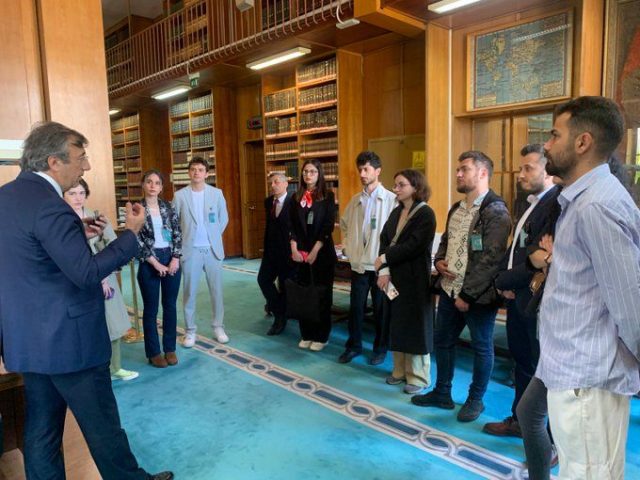
Following the training camp, participants attended the media conference titled “Digital Monopolies, Threats and Pursuits”, hosted by the Association of Journalists as part of the Media for Democracy, Democracy for Media project.
Organised with the support of the Media Solidarity Group—an umbrella platform for various media organisations—the conference explored the opportunities and challenges posed by the digital era and examined potential legal and sectoral solutions.
This intensive six-day programme made a direct contribution to the professional growth of young journalists by combining theoretical education with hands-on experience. Beyond skills, it fostered awareness around journalistic ethics, digital transformation, and resilience. Its continuation in future years—with broader regional inclusion and expanded thematic content—promises to strengthen independent and high-quality journalism in Türkiye.
